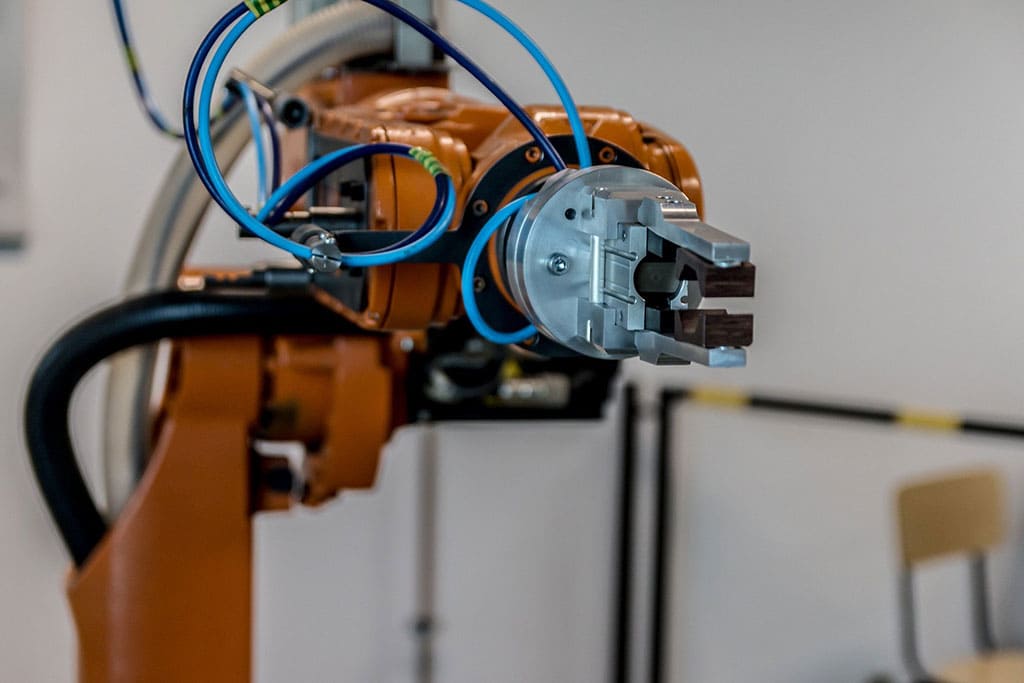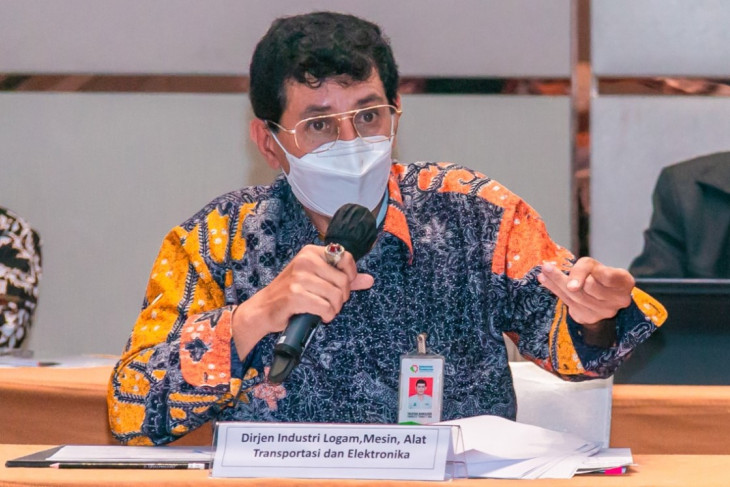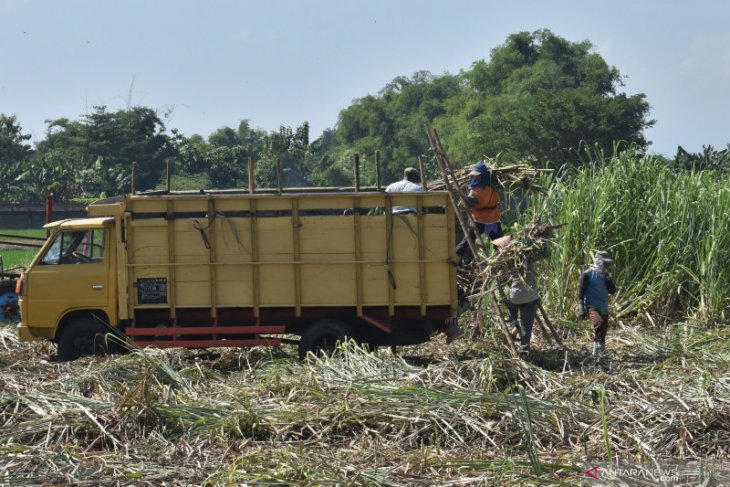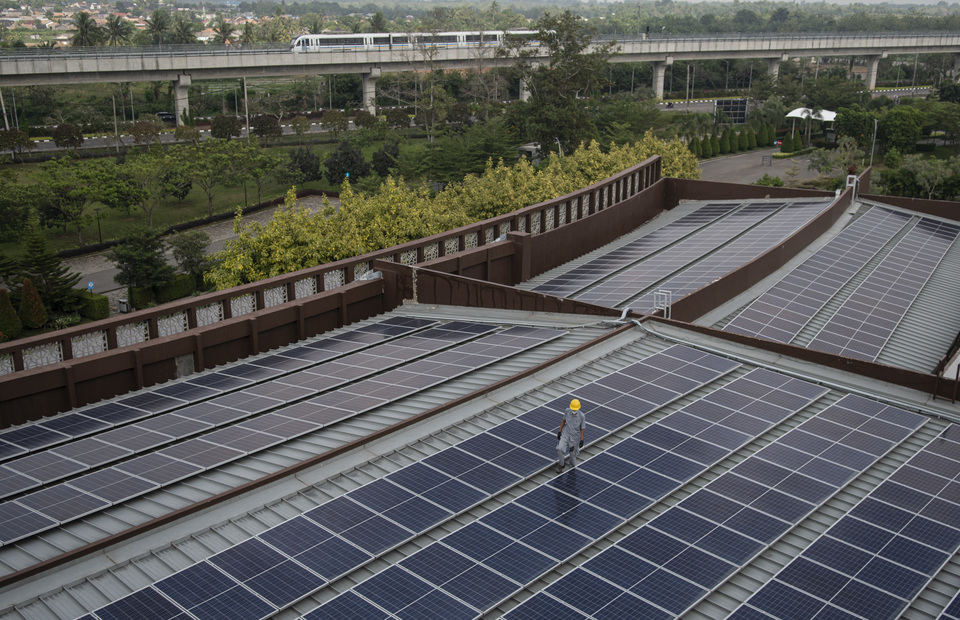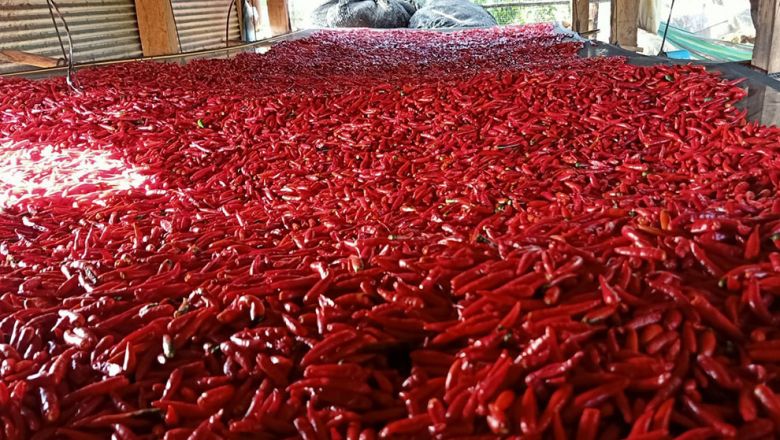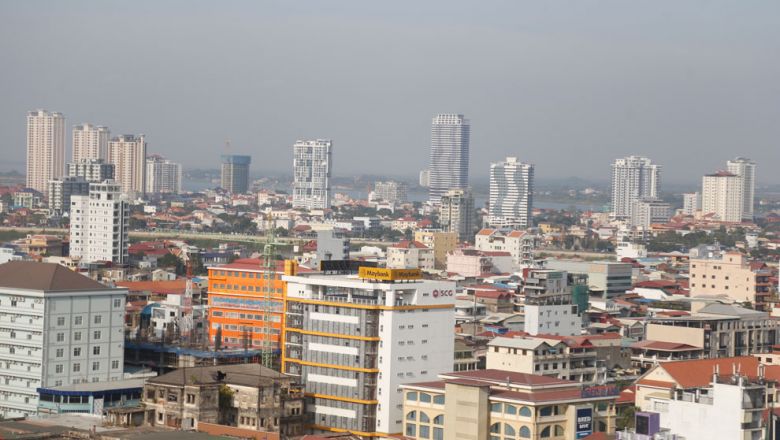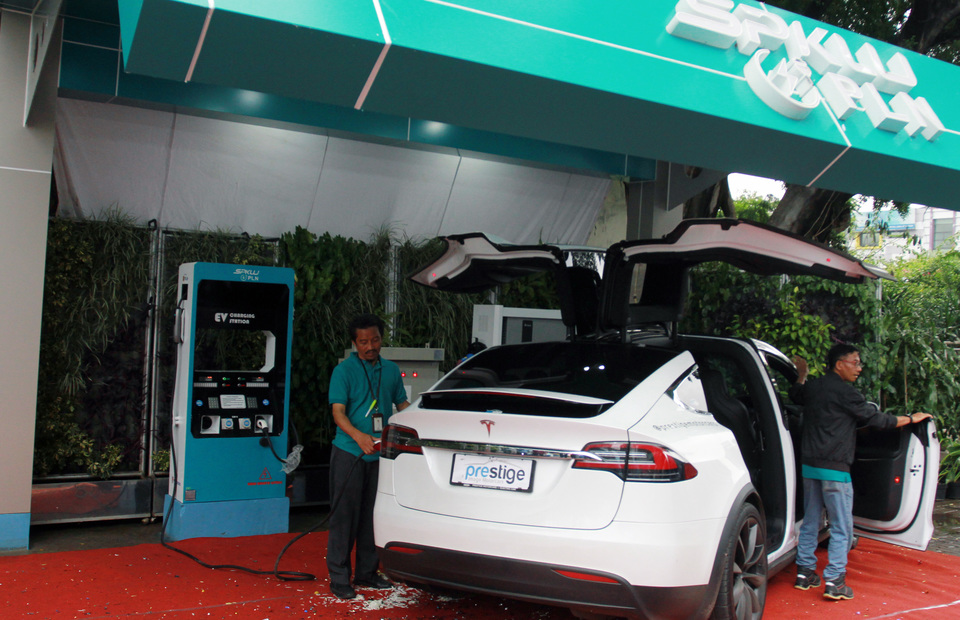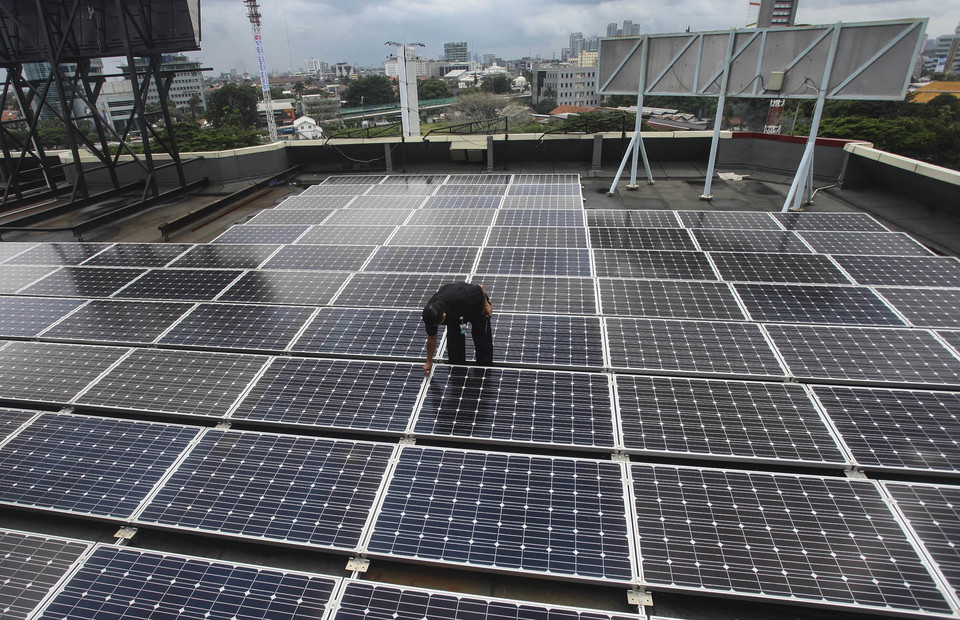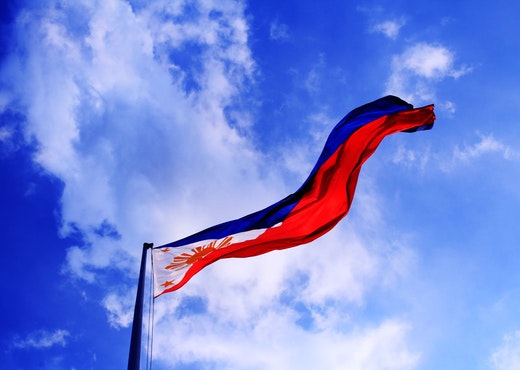The Cambodian business community is eager to work with small- and medium-sized enterprises (SME) across the country to list a curated selection of high-quality offerings on Amazon.com, the well-known US e-commerce platform.
Cambodia Chamber of Commerce (CCC) director-general Nguon Meng Tech said the two sides discussed the mechanisms for exporting Cambodian products to the US via Amazon, the preparation of quality and standard requirements, and the use and necessary particulars relating to barcodes.
“I have advised all Cambodian entrepreneurs who are producers to get in touch with amazon.com directly to benefit and set standards that meet their requirements,” he told The Post on August 11. “We can sell our products on the Amazon.com platform, which is the largest online system in the world.”
Bilateral trade between Cambodia and the US remained resilient in the first half of 2021, clocking in at $3.8402 billion, or a 32.8 per cent surge from the $2.8917 billion booked in the same period last year, according US Census Bureau data.
Cambodian exports to the US during the January-June period were valued at $3.6376 billion, climbed 32.4 per cent year-on-year, while imports were to the tune of $202.6 million, rising 40.3 per cent, on August 7.
Author: Thou Vireak
Images credits: AFP
Source: The PhnomPenh Post
For full article, please read here.
Original published date: 11 August 2021
The Ministry of Industry of Thailand expects Thailand to become a leading country with robotic and automation technology by 2026, following investments in robot-based production systems. The country is emphasising robotics, automation and system integration (SI) development in a move to eventually produce technologies of its own. During this period, the investment value for automation and robotic systems has been around 116 billion baht.
There are also 74 SI-related businesses registered with the Center of Robotic Excellence (CORE). According to the ministry, 25% of factories use automation and robotics technology. More domestic production of robots will also reduce imports of robotic technology by 12%. The government has been promoting robotic and automation systems under the Industry 4.0 scheme (the fourth industrial revolution), which encourages factory operators to blend digital technology with data analysis.
At present, only 2% of Thai industries are considered to be Industry 4.0 using advanced technology in their operations, according to the ministry. Some 28% are in Industry 3.0 with less high technology and 61% in Industry 2.0. Only 9% are in the stage of Industry 1.0, the lowest level of technological development.
Officials believe the ongoing Covid-19 pandemic, which has led to a rise in remote work and automation to avoid crowding at factories, will encourage many countries to adopt more advanced technology. The Board of Investment is offering 50% corporate income tax reduction lasting three years to promote investment in technology upgrades and production efficiency improvements.
Source: Bangkok Post
Read the full article here
The Indonesian Ministry of Industry has said it would continue to encourage the development of the local gaming industry by strengthening its value chain and tapping its current potential.
"The effort aims to make the Indonesian gaming industry more competitive globally through a good content industry ecosystem," Director General of Metal, Machinery, Transportation and Electronics Industry (ILMATE) at the Industry Ministry Taufiek Bawazier said at the 'Proud of Games Made in Indonesia' webinar on Tuesday.
The ministry has tried to strengthen the value chain of the content industry by involving several supporting sectors, such as the comics, animation, film, gaming, music, and toy industries, as well as coordinating with related ministries, state-owned enterprises, and private players, he informed.
“Industries based on intellectual property (IP) can collaborate in products and IP development invested by the government and private stakeholders," the director general said in a written statement.
"Furthermore, Indonesia has many potentials. There are 52 million Indonesian gamers. Currently, Indonesia is the largest gaming industry market in Southeast Asia and is ranked 17th in the world," Bawazier informed.
According to data provided by game-focused market research and analytics firm Newzoo, the revenue of the gaming industry in Indonesia increased significantly in 2016-2019. In 2019, Indonesia earned US$1.084 billion from the gaming and eSports industry, the data has shown.
Source: Antara News
Reporter: Risbiani Fardaniah, Uyu Liman
Editor: Rahmad Nasution
Original published date: 04 August, 2021
The United Arab Emirates (UAE) has expressed interest in investing in Indonesia's farming sector, specifically sugarcane plantations and the sugar industry, secretary general of the Agriculture Ministry, Kasdi Subagyono, informed on Monday.
"We have several offers, like from the United Arab Emirates, where they are offering to develop their business in Indonesia related to sugarcane plantations, then sugar industry, and its derivative industries," he said during a discussion on the ease and acceleration in conducting business in the farming sector post the job creation law.
One of the Agriculture Ministry's priorities is to provide an opportunity for and support the conduct of business in the farming sector to attract investor interest, he added.
The Job Creation Law offers a business licensing mechanism using a risk-based approach, he noted.
This approach provides risk analysis to potential investors and also assistance in business development to entrepreneurs, he said.
According to Subagyono, Indonesia's farming sector is quite promising and has proven to be resilient, with a growth record that has remained positive throughout the COVID-19 pandemic.
This is especially impressive when the positive growth of the farming sector is compared to the negative growth of other sectors, he said.
Data from the Central Statistics Agency (BPS) shows the farming sector recorded its highest growth of 16.24 percent in the second quarter of 2020.
Source: Antara News
Reporter: Aditya Ramadhan, Fadhli Ruhman
Editor: Suharto
Original published date: 02 August, 2021
Indonesia is stepping up its efforts to reach clean energy targets with the construction of a 145 megawatt (MW) floating solar power plant, set to be the largest in Southeast Asia.
The project, with constructions underway in West Java, secured financing from state utility company Perusahaan Listrik Negara (PLN) and Masdar of United Arab Emirates on Tuesday.
Solar may be Indonesia's best shot of reaching its short-term clean energy target, an energy expert told the Jakarta Globe. The government aims to have 23 percent of energy coming from new and renewable sources by 2025, but by the end of last year, it was only halfway to the target.
Director General of New Renewable Energy and Energy Conservation from the Ministry of Energy and Mineral Resources, Chrisnawan Anditya, said that one of government’s priorities is indeed solar power plants. Besides being fast to create and having a high development potential in the tropical archipelago, they are competitive in price.
In fact, solar panel prices have dropped 60 percent in the last 6 years. With financing schemes from solar developers, Indonesians can even order home panels to be installed for free.
While solar power is now the cheapest it ever was — and the fastest growing renewable energy source worldwide — as of May last year, it amounted to less than 6 percent of Indonesia’s total power generation. The country still depends largely on coal and fossil fuel-fired plants, accounting to some 85 percent of national electricity sources.
On the other hand, the true potential of solar power remains untapped. The country has the potential to generate 207 gigawatts (GW) of solar power, but only around 0.09 GW or less than 0.1 percent has been utilized. The National Energy Policy (KEN) aims to increase solar power generation to 6.5 GW in 2025 and 45 GW in 2050.
The urgency to shift to clean energy isn't just than a matter of fulfilling the 2025 target or the Paris Agreement, to which Indonesia is a signatory.
Today’s atmospheric carbon levels are the highest they have been in hundreds of thousands of years, leading to catastrophic rise in global temperatures.
Lowering carbon emissions cannot be done without reforms within the power sector, which is responsible for nearly two-thirds of emission growth globally.
Source: JakartaGlobe
Author(s): Grace Nadia Chandra, Kezia Kho
Original published date: 04 August, 2021
ASEAN Model Contractual Clauses for Cross Border Data Flow mechanism (MCCs)
Digital data governance has become increasingly crucial in ASEAN. Appropriate regulation is needed to facilitate and protect cross-border data flow, which has been intensifying as the region is becoming more economically integrated and digitized. Recognizing this need and supporting the economic integration and digital transformation in the region, the ASEAN Digital Ministers has approved ASEAN Model Contractual Clauses for Cross Border Data Flow mechanism (MCCs) on 22 January 2021.
MCCs provides contractual terms and conditions that may be included in the legally binding agreements between parties transferring personal data to each other across borders. MCCs aims to harmonize cross-border data flow standards in the region and increase ASEAN Member States (AMSs) capacity in accelerating digital transformation agenda and building a trusted, transparent, and accountable digital environment for businesses. MCCs is developed based on the ASEAN Framework on Personal Data Protection which derives its principles upon the principles of the APEC Privacy Framework or OECD Privacy Guidelines, which lends itself to be interoperable with other global data protection systems such as APEC’s Cross-Border Privacy Rules (CBPR) and EU’s General Data Protection Regulation (GDPR).
The Obligations under the ASEAN MCCs
- The obligations in ASEAN MCCs are derived from the ASEAN Framework on Personal Data Protection (2016) that are in line with global best practices. The obligations encompass key principles of data protection, including:
- Providing Legal Basis for Collection, Use, and Disclosure: The Data Exporter warrants that the data is collected, used, disclosed, and transferred in a manner aligned with prevailing laws in AMS. In the absence of such law, Data Subject shall have been notified and given consent to the purposes, where and reasonable and practicable.
- Baseline Data Protection Clauses: The Data Importer will process the data in accordance with the baseline clauses in the ASEAN Framework on Personal Data Protection (2016) principles related to Collection, Notification, Purpose, Accuracy, Security Safeguards, Access and Correction, Transfers, Retention, and Accountability.
- Data Breach Notification: The Data Importer shall notify the relevant authorities and Data Exporter as soon as it becomes aware of any loss or unauthorized use, copying, modification, disclosure, destruction of, or access to, personal data under the contract.
- Due Diligence: Data Exporters are encouraged to conduct due diligence on other parties to meet the requirements of the MCCs. Data Importers are also encouraged to conduct due diligence on them if there is the onward transfer of the data by the Data Importers to third-party importers.
Using the MCCs
The private sectors in AMS may adopt the MCCs, in the transfer of data to other parties in other AMS or in non-AMS. To adopt the MCCs, the private sectors must include the key data protection obligations in their commercial contracts between the parties to the data transfers. The adoption of MCCs is voluntary for business entities in ASEAN, and the parties may modify the contractual clauses as long as it is aligned with the principles in the ASEAN Framework on Personal Data Protection (2016). The parties may also add clauses, as mutually agreed, that are specific to their business process or industry sector, including clauses on specific rules imposed by the sector’s regulatory authority.
Besides MCCs, private sectors are also free to use any other valid data transfer mechanisms recognized by some jurisdictions within ASEAN, including, but not limited to, self-assessment based assurance that data transferred from overseas is protected to a comparable level of protection, binding corporate rules, certifications, which may include ISO series relating to security and privacy techniques, APEC Cross Border Privacy Rules, and Privacy Recognition for Processor Systems, or other legally recognized mechanisms.
The ASEAN MCCs provide two modules for use in two common transfer scenarios, as follow:
- Controller-to-Processor Transfer: For use by the Data Exporters who transfer data to Data Importers who are contractors or vendors, who will process data on behalf of the Data Exporters. This also includes onward transfers from data processors to the downstream data processor.
- Controller-to-Controller Transfer: For use when the Data Exporter transfers data to the Data Importer for its own purposes and may have full control of the data upon receipt.
Benefits of ASEAN MCCs for Businesses
- Ready-to-use flexible template: MCCs reduce length of negation for contracts and are consistent with ASEAN PDP Principles.
- Easy ASEAN Adoption: No requirement for new laws and contractual disputes regarding MCCs may be resolved in civil courts. All private sectors, including SMEs may use MCCs.
The full text of the ASEAN MCCs is available at this link.
*****
Other Recent Updates
One-stop SME information portal for international oriented business launched
The ASEAN Coordinating Committee on Micro, Small, and Medium Enterprises (MSME) launched ASEAN Access in Bangkok on 16 June 2021. ASEAN Access is a one-stop business information gateway for international-oriented businesses to expand their market outreach in ASEAN and beyond. The web portal aims to provide trade-related information and market opportunities by connecting businesses to service providers in areas of distribution, transportation and logistics, market research, and consultancy on intellectual properties, laws, and regulations. The ASEAN Access is administered by the Office of SMEs Promotion Thailand, developed with the support of the Federal Government of Germany and technical assistance from the German Agency for International Cooperation (GIZ).
ASEAN-EU Comprehensive Air Transport Agreement (AE CATA)
ASEAN and the European Union (EU) and its Member States have concluded the negotiations on the ASEAN-EU Comprehensive Air Transport Agreement (AE CATA) at the Extraordinary ASEAN-EU Senior Transport Officials Meeting held virtually on 2 June 2021. The agreement facilitates the airlines of ASEAN and the EU to fly any number of services between both regions, and also fly up to 14 weekly passenger services and any number of cargo services via and beyond to any third country. The agreement is expected to rebuild air connectivity between ASEAN and Europe in the post-COVID 19 pandemic and open new growth opportunities for the aviation industry in ASEAN and the EU.
*****
The 30th Meeting of the ASEAN Director-General of Customs
The 30th Meeting of the ASEAN Customs Directors-General was held virtually on 8-10 June 2021. The meeting commended the achievements and work progress in the completion of the Strategic Plans of Customs Development (SPCDs) 2016-2020, which has been 99% implemented, and placed Customs as the body with the highest output delivery of 78% under Characteristic A, A Highly Integrated and Cohesive Economy, as reported in the final report of the Mid-Term Review of the ASEAN Economic Community Blueprint 2025. The meeting also welcomed the Live Operation of the ASEAN Customs Declaration Document (ACDD), which started on 31 December 2020 in Cambodia, Myanmar, and Singapore, and followed by Malaysia and Thailand on 31 March 2021. The meeting is looking forward to the Live Operation in the remaining AMS within 2021.
*****
ASEAN Workshop on the Circular Economy
The ASEAN Secretariat conducted an online workshop on Circular Economy (CE) on 30 June 2021, to gather relevant sectoral bodies and stakeholders, including the ASEAN Business Advisory Council and the Joint Business Councils, to discuss the draft Framework for Circular Economy for the ASEAN Economic Community (AEC). The Framework is hoped to guide the work of the AEC on CE, by identifying strategic priorities and priority initiatives, and exploring cross-pillar and cross-sectoral collaborations. The strong support of stakeholders, particularly the private sector, would be crucial in ensuring ASEAN’s transition towards CE. The draft Framework was developed with the Economic Research Institute for ASEAN and East Asia (ERIA).
*****
Unlocking RCEP for Business Webinar Series: Trade in Goods
The ASEAN Secretariat, in collaboration with the East Asia Business Council, organised a webinar on RCEP on 26 July, focusing on goods related chapters of the Agreement. The topics discussed included tariff liberalisation, non-tariff measures, and trade remedies. Noting the importance of SMEs for the region’s economy, panellists highlighted the importance of deeper engagement with the SMEs and recommended the ASEAN Secretariat to hold more sessions involving regional and national business councils. The webinar marked the launch of a series of webinars the ASEAN Secretariat will be hosting throughout the year and the video recording of the first session is available at this link.
*****
Upcoming Events
- ASEAN Senior Economic Officials’ Meeting 3/52 (SEOM) (2 - 4 August 2021)
- Senior Economic Officials Meetings – Dialogue Partners Consultations (5,11,16 August 2021)
- 12th ASEAN Connectivity Symposium: Promoting Recovery and Resilience through Connectivity (26 August 2021)
- 53rd ASEAN Economic Ministers’ (AEM) Meeting (9 September 2021)
- ASEAN Economic Ministers – Dialogue Partners Consultations (14 - 15 September 2021)
Click here for previous editions of the ASEAN for Business Bimonthly Bulletin
Cambodia exported 67,547.34 tonnes of chillies in the first seven months of 2021, an increase of nearly 50 per cent year-on-year, according to the General Directorate of Agriculture.
During the period, the Kingdom shipped 66,227.12 tonnes of fresh chilli to Thailand, up 46 per cent year-on-year, and 0.002 tonnes to the UAE, And 1,320.22 tonnes of dried chilli were sold to Thailand, up 10.02 per cent, 0.21 tonnes to Belgium and 0.01 tonnes to Canada.
The Battambang provincial Department of Agriculture official noted that chillies tend to be grown together with other vegetables on the same space, which makes it cumbersome to estimate the total cultivation area.
Most chilli plants are grown near bodies of water in the dry season, and they produce ripe fruit around two and a half months after sowing, according to the official. “Chillies are primarily grown in Battambang to meet demand for consumption in the province, and the little that is left over is exported.”
Cambodian exports of non-rice agricultural products in the first seven months of this year were valued at $2.37378 billion, according to the ministry.
Author: Hin Pisei
Source: The PhnomPenh Post
For full article, please read here
Original published date: 03 August 2021
Cambodia drastically downgraded its economic forecast for 2021 to 2.5 per cent from the 4.1 per cent projection announced at the beginning of the year, due to the deteriorating Covid-19 situation.
The Cambodian Prime Minister announced the revised prediction on August 1 at the launch of the vaccination campaign for the adolescent group aged 12-17, at the Peace Palace in Phnom Penh.
World Bank regional vice-president for East Asia and Pacific Victoria Kwakwa told The Post in mid-July that the Kingdom is working hard to keep SARS-CoV-2 variants at bay, much like other countries in the region.
The Prime Minister said agriculture would for the foreseeable future remain a key player in undergirding Cambodian exports and in maintaining the food security level needed to shore up economic growth.
Agricultural exports have grown beyond expectations, he said. And while milled-rice exports have recorded marginal contractions, paddy shipments to Vietnam and the UAE soared 200 per cent year-on-year, following a Ministry of Agriculture, Forestry and Fisheries report.
Meanwhile, cashew nut exports surged nearly 300 per cent to more than 800,000 tonnes, he said, adding that sales of cassava, mangoes, bananas and other crops have amounted to billions of US dollars.
Author: May Kunmakara
Photo credit: Heng Chivorn
Source: The PhnomPenh Post
For full article, please read here
Original published date: 03 August 2021
Industri Baterai Indonesia, an electric vehicle battery subsidiary of state-owned largest miners, has estimated that it would need $15.3 billion in total investment to develop an integrated electric vehicle battery, the company top executive said on Wednesday.
Toto Nugroho, the president director of Industri Baterai Indonesia, said the investment would cover processes from the mining of the battery raw materials, smelting/ refining, battery chemicals manufacturing, battery cells manufacturing, all the way to the recycling of used batteries.
"We need an investment of $15 billion, which is a challenge in itself. There is a timeline of around 3-4 years," Toto said in a session discussing the environmentally friendly automotive industry at the 2021 Investor Daily Summit on Wednesday.
According to a company's presentation, Industri Baterai Indonesia would need $160 million in investment to mine limonite and saprolite, metallic ores that rich in nickel, the main ingredient for lithium-ion batteries.
Next, the company would need to invest in smelting facilities, including rotary kiln electric furnace (RKEF) technology and another using high-pressure acid leaching (HPAL) technology, to process the ores. Industri Baterai Indonesia would need $1.3 billion in investment for each smelting facility.
The battery precursor materials and cathode would need $1.8 billion and $3.8 billion in investment, respectively, while the production of the battery cell itself may need an upfront cost of $6.73 billion. For battery recycling, Industri Baterai Indonesia sought to put in $30 million upfront capital.
Source: JakartaGlobe
Original published date: 15 July, 2021
Surya Utama Nuansa, one of Indonesia’s largest solar power developers, aims to increase its Southeast Asian portfolio by eleven-fold to a total capacity of 2 gigawatt peak, as more customers would soon realize the cost for transitioning to solar power has become more competitive compared to fossil fuel energy.
The company, also known by its trade name SUN Energy, now works and operates on projects in Indonesia, Taiwan, Vietnam, and Thailand with a total capacity of 180 megawatts peak (MWp). Solar power plants use MWp to describe their capacity under ideal conditions.
With the global trend to shift to renewable energy, SUN Energy COO Philip Lee said he is optimistic they can increase their Southeast Asian portfolio to 2 GWp by 2025, equivalent to 2.000 hectares of land used for solar panels.
The urgency to switch to renewable energy has increased globally in the last few years following the Paris Agreement, which Indonesia signed in 2016. Last year, the government set to have 23 percent energy coming from renewable sources by 2025.
Though Indonesia has made significant progress in switching to clean and renewable energy — with 11.5 percent of energy now coming from renewable sources — it is still halfway from its 2025 target.
Source: JakartaGlobe
Author: Grace Nadia Chandra, Kezia Kho
Original published date: 28 July, 2021



